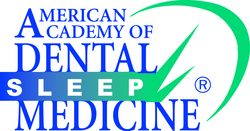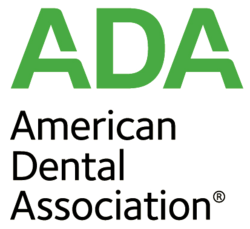Stay In-the-Know with Our Fairview Heights Dental Office
We believe in creating a relationship with our patients that goes beyond the office doors. We've specifically created this section of our site to share with you important news and informational dental blogs from our Fairview Heights family dental practice.
Sincerely,
Your Fairview Heights Cosmetic Dentists
You Can Have a Healthy Smile and Eat Your Favorite Holiday Foods, Too!
Help Your Children Share their Strong and Healthy Smile with the Right Snack Choices
We’re all familiar with tasty sweets, chocolates, and candies that we love to indulge in. It’s no surprise that children are big fans of those treats, too. Unfortunately, too much of something as delicious as candy can be detrimental to your smile, especially against baby teeth. That’s why we believe it’s extremely important to establish good, healthy habits to help children avoid cavities, decay, early tooth loss, and other oral health problems.
There are numerous ways that candy is intertwined in a child’s life. Sometimes, it’s reflexive, like giving them candy or chocolate to stop them from being upset. Other times, it’s a reward for doing well in class or in a public situation. This can be used as a default tactic, but we highly encourage patients to not use this method. Instead, we want children to know how candy can hurt their teeth and why they shouldn’t have such a large amount in one sitting and so frequently.
What are the best snacks and drinks for my child to have?
Some of the best snacks for children to play are, of course, fruits and vegetables. While they’re not always the ideal snack for kids, their teeth will be thankful. Some of the most convenient and tasty are bananas, tangerines, carrot and celery sticks. Rice cakes and plain popcorn are also great alternatives.
Because of their convenience, parents are likely to buy dried fruits since they don’t expire nearly as fast as fresh fruits do. Unfortunately, dried fruits can be extremely high in sugar and are quite sticky. They can get in hard-to-reach places in your teeth and can cause bacterial build-up. Try to avoid enjoying these as often as fresh fruits, but note that they can be a better alternative than other candies and snacks.
Instead of sodas and sugary fruit juices, try to switch their daily beverage to water. Another great drink for children to have is plain milk. Don’t be afraid to ask us which kind of milk, whether it’s whole milk or skimmed milk, that is best for your children’s teeth.
Protect your family’s smile by avoiding too many sweets and treats
No matter how old you are, candy is still dangerous to your oral and dental health. We want to share this information with our patients because children’s teeth are extremely sensitive and aren’t as strong as adult teeth. It’s important to take care of their baby teeth to make sure this area is healthy enough for their adult ones to grow in. If children suffer from cavities and decay when they have their baby teeth, their adult teeth are also at risk.
If you’re interested in learning about more tips to protect your child’s smile, whether it’s about food, drinks, or bad habits, please feel free to call your Fairview Heights IL dentist at (618) 622-1800 today.
Stay Healthy with these Brushing Tips and the Help of your Fairview Heights IL Dentist
To ensure the best oral health, we believe that you should brush your teeth twice daily, once in the morning and once at night, to ensure the best oral health possible. Don’t worry, we understand – you lead a busy schedule that may cause you to skip or forget your daily dental routine, but we don’t want bacterial build-up to get the best of you and harm your teeth. Below, your Fairview Heights IL dentist discusses a few mistakes that may occur while brushing your teeth and what you can do to correct them.
Before you start, you have to make sure that the toothbrush you have is the best one for you. There are tons of various kinds of toothbrushes available, but we highly recommend using a soft bristle brush that has a head size you’re comfortable with. If you have a toothbrush with the head that’s too big for your mouth, you could be missing some areas that you’re supposed to brush. This is where the bacteria can build up and cause cavities, decay, and more. Electric toothbrushes are also a viable option, but make sure you’re still performing the right technique.
Speaking of technique, you’re probably wondering – what is the best technique to brushing your teeth? There are several notes that you have to remember during your morning and nightly routine, including brushing for at least two minutes, making sure you’re cleaning every area of your mouth (yes, this includes the very back), and holding your brush at the right angle to reach all of those tough spots.
Something you may not have known is that brushing your teeth for too long is harmful! Your teeth, while strong and durable, can also become sensitive if it’s exposed to the ingredients in toothpaste for too long and too often. You’ll weaken your enamel, which will cause sensitivity when enjoy hot or cold foods and drinks.
Another note to take down is knowing when to get rid of a toothbrush. It’s recommended that you replace your toothbrush every three months, or after you’ve been sick with something contagious like a cold or flu. When you see your bristles starting to fray, that’s when you know it’s time to go! Even if you don’t see them fray, the bristles aren’t cleaning at their full potential and we want you to have the best brush each and every day.
By correcting some of these common mistakes while brushing your teeth, you can be working towards the best, healthiest smile for you. Couple these practices with your routine, bi-annual visits with us by calling us today at (618) 622-1800 to schedule your appointment.
With proper teeth care, most people try to avoid removing a tooth. In the mind of many people, a tooth is only removed because there is no hope for the tooth. And this is the case sometimes. However, this is not always the reason for removing a tooth.
Why are Teeth Removed?
There are several reasons why teeth are removed, and it is important that you realize this does not mean that you did not take care of your teeth. Even those who brush and floss twice daily still have some issues with their teeth, as many teeth issues are genetic. Some of the reasons why the teeth may be removed:
- There are extra teeth coming into the mouth that are not needed
- Baby teeth sometimes have to be removed in order for permanent teeth to come in straight
- Certain drugs, like those for cancer, can weaken the teeth and these have to be removed
- If the tooth is causing an infection, then these teeth are almost always removed
- Wisdom teeth are constantly removed from people due to lack of room or having infections set in
How are Teeth Removed?
There are two main ways in which teeth removal occurs in the dental office. These extractions are:
- Simple Extraction: this is performed when the tooth can be seen in the mouth. These are rather common, especially if baby teeth are being removed.
- Surgical Extractions: These are a bit more in-depth, as they are used when the tooth may be broken off into the gum line, it has yet to break through into the mouth. These are done by specialists called oral surgeons. Many people find that this is who their wisdom teeth are removed.
It is important to remember that teeth removal is often a must for the health of the person’s mouth. It is important that you go see your dentist about any tooth related injury you may have and ensure that you are following their directions to a “T” in order to stay healthy!




